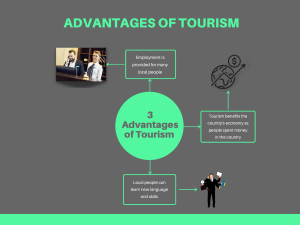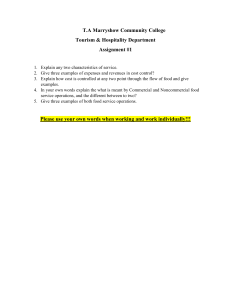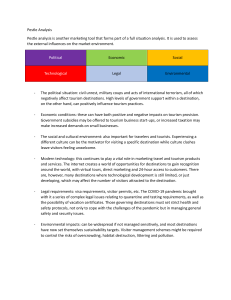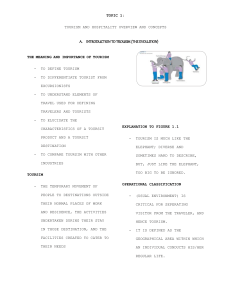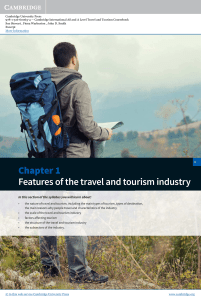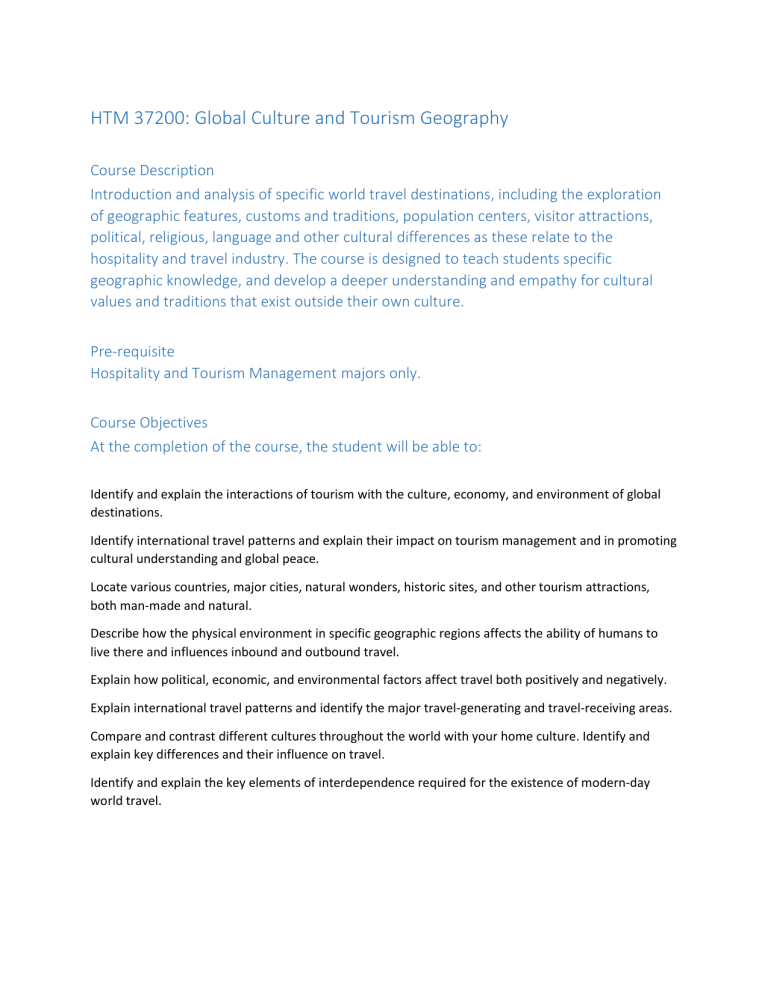
HTM 37200: Global Culture and Tourism Geography Course Description Introduction and analysis of specific world travel destinations, including the exploration of geographic features, customs and traditions, population centers, visitor attractions, political, religious, language and other cultural differences as these relate to the hospitality and travel industry. The course is designed to teach students specific geographic knowledge, and develop a deeper understanding and empathy for cultural values and traditions that exist outside their own culture. Pre-requisite Hospitality and Tourism Management majors only. Course Objectives At the completion of the course, the student will be able to: Identify and explain the interactions of tourism with the culture, economy, and environment of global destinations. Identify international travel patterns and explain their impact on tourism management and in promoting cultural understanding and global peace. Locate various countries, major cities, natural wonders, historic sites, and other tourism attractions, both man-made and natural. Describe how the physical environment in specific geographic regions affects the ability of humans to live there and influences inbound and outbound travel. Explain how political, economic, and environmental factors affect travel both positively and negatively. Explain international travel patterns and identify the major travel-generating and travel-receiving areas. Compare and contrast different cultures throughout the world with your home culture. Identify and explain key differences and their influence on travel. Identify and explain the key elements of interdependence required for the existence of modern-day world travel.
